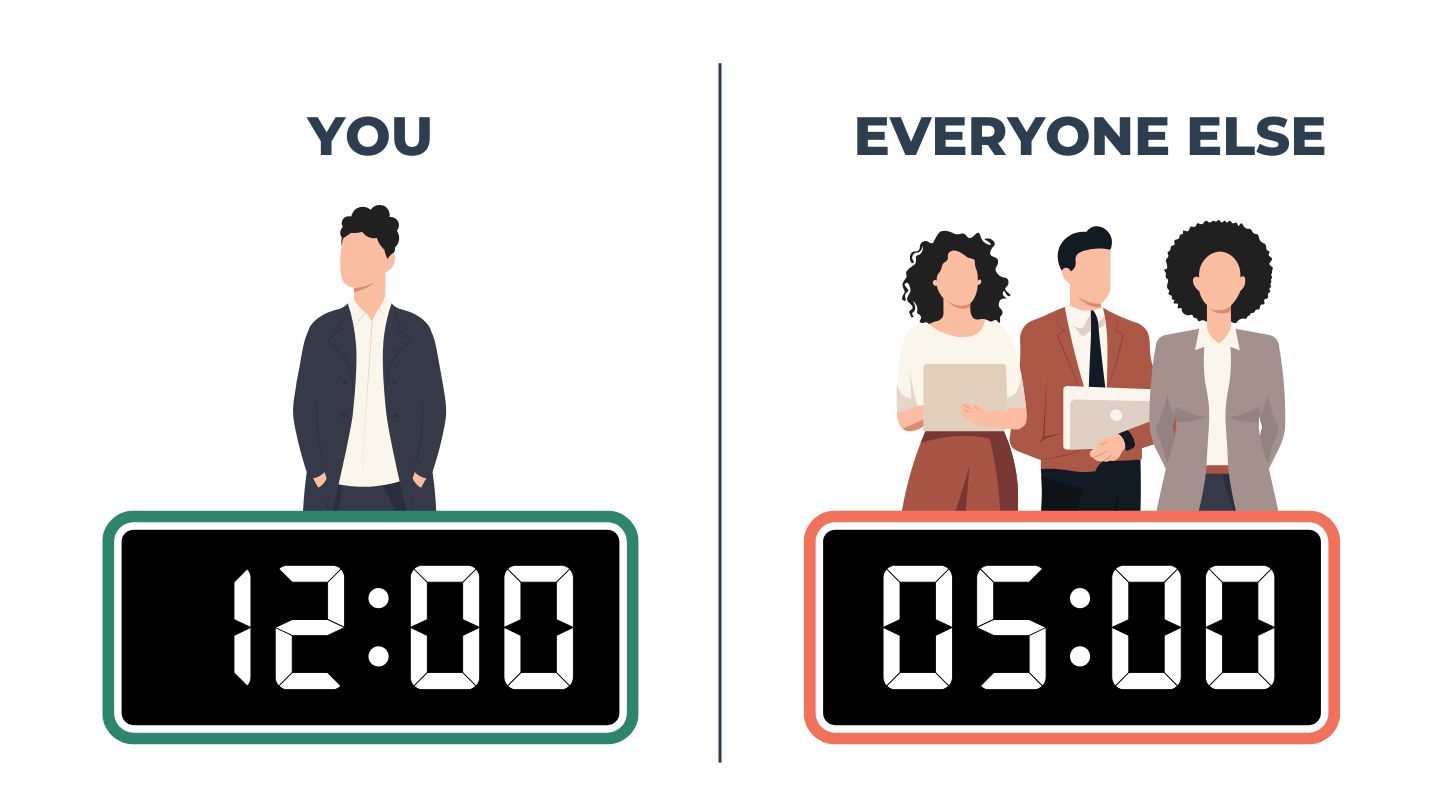How to Achieve in One Morning What Most Do in a Day
Dec 04, 2024
Read time: 3 minutes
Stop sabotaging your success with scattered days. Discover the hidden time traps stealing your focus—and the simple fix that will change everything.
The average knowledge worker is productive for only 2 hours and 53 minutes per day.
The rest of their time? Scattered into useless fragments.
I do Brazilian Jiu-Jitsu. Imagine if I trained this way:
I show up for class, warm up, and watch the coach demonstrate a technique. Just as it’s my turn to practice, I leave for a meeting.
An hour later, I’m back. Cooled down, I warm up again and try to remember the technique. I practice a couple of times, then—another meeting calls.
I leave, come back, and repeat the cycle over and over.
Sounds absurd, right?
Yet this is exactly how we work every day.
The Time Confetti Problem
Look at your calendar. It probably looks something like this:

Every interruption isn’t just time lost—it’s momentum destroyed.
One hour meeting? Actually costs:
- 20 minutes of pre-meeting anxiety
- 60 minutes of meeting time
- 20 minutes to regain focus
- Plus the mental residue that lingers
Your day becomes confetti—tiny pieces of time scattered between interruptions.
Makers vs. Managers
Paul Graham, co-founder of Y Combinator (which launched companies such as Airbnb and Dropbox), identified a crucial distinction in how people work best.
Makers need long, uninterrupted blocks of time to produce quality work. Think analysts, writers, developers, designers. They create things. Their productivity depends on deep focus.
Managers operate differently. Their job is coordination and decisions. Their productivity comes from scheduled interactions throughout the day.
Here's the key: Most people are primarily one or the other. Even if you do both, one style typically dominates.
Knowing which you are changes everything.
How to Implement This
-
Know your type:
- Are you primarily a maker? (You create things)
- Or mainly a manager? (You coordinate things)
- Be honest about which dominates
-
Design your schedule accordingly:
For Makers:
- Block 3-4 hours of uninterrupted morning time
- Front-load your deep work when your mind is fresh
- Stack all meetings in your afternoon when creative energy naturally dips
- Start scheduling from the back of your day forward (4PM, then 3PM, etc.) to protect your mornings
For Managers:
- Break your day into focused 30-45 minute blocks
- Leave buffer time between meetings for decisions and follow-ups
- Set specific response windows for email and messages
- Keep one "maker block" per week for strategic thinking and planning leverage points
If you must do both:
- Dedicate entire days to each mode (don't mix)
- Use "maker days" for creating systems, processes, and strategic assets
- Use "manager days" for team alignment and decisions
- Communicate clearly which mode you're in to your team
Protect Your Team’s Focus
Before scheduling that "quick sync," calculate the real cost:
- If you pull five makers into a one-hour meeting
- Each loses 2 hours of productivity (including recovery)
- That's 10 hours of creative work lost
- Multiply that by their hourly rate
- Now multiply that by the opportunity cost of what they could have created
Was that meeting worth it?
Protect Your Own Focus
Be ruthless with your time. Not because you're difficult, but because your most meaningful work happens in these blocks.
When someone asks for your time, be direct:
"I dedicate specific blocks for meetings and discussions. Let’s schedule this for [days/times], or feel free to catch me during [office hours].”
This works because:
- It respects everyone’s time: People appreciate knowing when you’re available.
- You maintain focus: Meetings happen without disrupting your deep work.
- You’re fully present: Clear schedules allow you to give your best attention to every task.
Start Today
Here's what most people miss: Every month, when you look back at what actually moved your work forward, 90% of it happened during maker time. Not in the gaps between meetings.
Look at next week right now. Don't just protect your maker time — eliminate everything that could break it. Your achievements will create more opportunities than any "quick sync" ever will.
To making a difference,
Dr Yannick
P.S. Next time someone says "got a minute?" remember — that minute could cost your entire maker block. And your maker blocks are where real progress happens.

